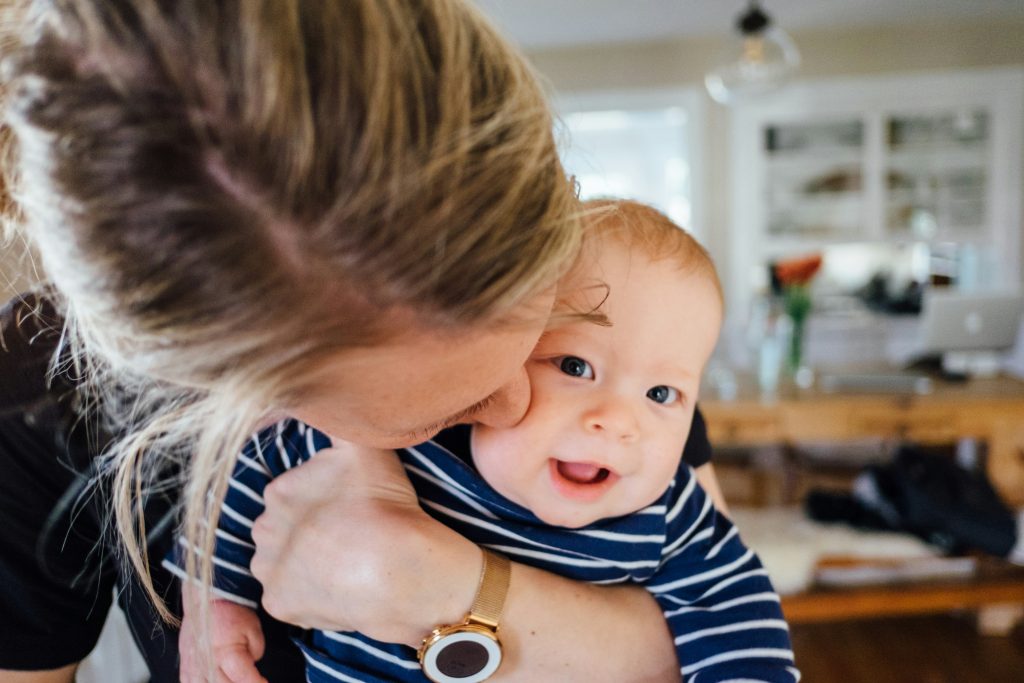This post contains affiliate links. Click here to read my affiliate policy.
Last Updated on February 2, 2024

Hearing loss in children can lead to significant delays in speech and language development, which is why early detection is so crucial. This blog post delves into the key signs of hearing loss mothers should watch for and offers expert insights on why and how to take action.
Introduction
The ability to hear is central to a child’s growth and overall development. It is through listening that children learn to communicate, understand, and interact with the world around them. Mothers often play a crucial role in detecting early signs of hearing loss in their children. In fact, a study comprising mothers in Ontario, Canada, showed that early identification typically occurred around 4.6 months of age.
Early Signs of Hearing Loss in Infants
From birth to 12 months, a child’s auditory system is in a critical phase of development. It’s essential that during this period, mothers are vigilant for certain milestones that may indicate hearing abilities. Here’s what to watch for in infants:
- From birth to 3 months: Babies normally get startled or upset by sudden loud noises. If they do not, it could be a sign of hearing loss. Additionally, by the age of 3 months, infants usually recognize their parents’ voices.
- By 6 months: Infants typically turn their head toward a sound. A lack of reaction may warrant further investigation.
- By 12 months: Babies begin imitating sounds and saying simple words like “mama” or “dada.” If your child isn’t making these attempts, it might be something to discuss with a pediatrician.
Signs in Toddlers and Older Children
As children grow older, the signs of hearing loss can become more apparent, yet they may also be mistaken for other developmental issues. Signs include:
- Delayed language skills: Language is learned by mimicking the sounds heard, so any delay can be an indicator of hearing difficulties.
- Abnormal speech: Noticeable deviations in speech quality can suggest hearing issues.
- High volume preferences: If a child insists on having the television or music at high volumes, it may be compensating for reduced hearing levels.
- Learning difficulties: Challenges in learning and keeping up with peers may result from an inability to hear well in educational settings.
- Inattentiveness: If a child isn’t responding to conversations or their name, it may be due to not hearing them.
- Troubles with background noise: Children with hearing loss often have difficulty distinguishing speech from background noise.
Insights from Experts
Audiologists emphasize that recognizing these signs early is key to managing potential hearing loss. “Early detection allows for timely intervention, which is crucial for the development of speech and language,” says one leading audiologist.
Pediatricians also agree on the importance of early recognition. “The sooner a hearing impairment is diagnosed, the better the outcomes for the child’s communication skills,” shares a pediatric doctor.
Experiences from the Ontario Study
Parents appreciate an early diagnosis, as it allows them to understand their child’s needs and seek appropriate assistance. Yet, the Ontario study reveals mixed experiences. Some felt the importance of milder hearing loss was downplayed by professionals, leading to uncertainty, particularly regarding the need for hearing aids.
The study underscores the requirement for specific guidance for parents to navigate the implications of their child’s condition. With adequate support and early intervention, children with hearing loss can achieve optimal outcomes.
Conclusion
Mothers are often the first to notice if something is amiss with their child’s development. Being aware of the signs of hearing loss and acting promptly can make a substantial difference in the child’s future. Regular check-ups with pediatricians, discussions with other parents, and consultations with audiologists are proactive steps that can aid in early detection. To stay informed about their children’s hearing health, parents have access to a variety of reliable resources. Established audiology and hearing health websites like HearingTracker, HearingLife, and HearingPeople offer valuable updates and insights. Utilizing these platforms empowers parents to stay up-to-date and actively involved in their children’s hearing well-being.
Remember, it’s normal to have concerns about your child’s development, and there’s power in being proactive. If you have noticed any of these signs, trust your instincts and speak with a healthcare provider. Your vigilance can pave the way for timely interventions and a better quality of life for your child.
Key Takeaways
- Monitor your child for normal hearing and speaking milestones.
- Be mindful of changes in your child’s listening behaviors or speech patterns.
- Seek professional advice early if you suspect a hearing problem in your child.
- Understand that early detection and intervention are pivotal in your child’s speech and language development.
- Collaborate with healthcare providers to get the support and resources your child needs.

